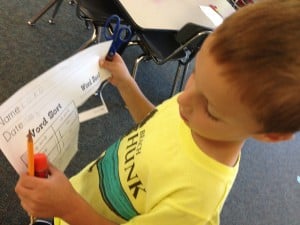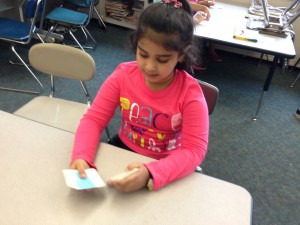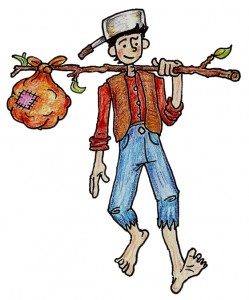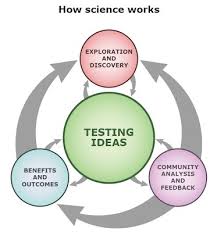Posted by kavery508 | Posted in Uncategorized | Posted on September 22, 2013
Reading Our Daily 5 CAFE focus this week is on activating schema and making connections when we read (part of Comprehension). These are huge strategies for young readers. Schema is what a reader understands about anything in life. We have schema about topics like making friends, seasons of the year, and so on. We also have schema for how to solve problems, and how we approach reading. Sometimes our schema is correct and sometimes it contains misunderstandings, which we learn to correct by reading and thinking. We therefore teach young readers to recognize what their schema is telling them and to use it as an access point to understanding what is read by making connections to it. Questions to ask your child during reading (either aloud to him/her or when s/he is reading): What do already know about ____ and what do you wonder? What does that remind you of in your life? This kind of thinking can help students understand characters, plot, and information better. More info is at Reading Rockets, a terrific literacy site for teachers and parents: http://www.readingrockets.org/article/29200/
 Our phonics focus will be on learning to read, hear, and write words with the short -o sound (pot, hop, log, etc.). We’ll be listening for it in words and poems read aloud, and leaning to write it by segmenting. This is when a reader and writer produces each sound in a short word in order. Research on memory suggests that young readers benefit from attaching sounds to a movement. The kids will therefore be learning to tap/clap/beat each sound as they say/write it.
Our phonics focus will be on learning to read, hear, and write words with the short -o sound (pot, hop, log, etc.). We’ll be listening for it in words and poems read aloud, and leaning to write it by segmenting. This is when a reader and writer produces each sound in a short word in order. Research on memory suggests that young readers benefit from attaching sounds to a movement. The kids will therefore be learning to tap/clap/beat each sound as they say/write it.
![]() Another technique for learning popcorn words is for students to write them repeatedly, unscramble their letters, and find a missing letter/sound purposely left out of them in lessons. We’ll be doing all that this week while playing games to help us learn the words you, that, my, me, like. When reading with your child, if s/he stumbles on (or has difficulty remembering) words that commonly come up, try any of the above strategies after reading.
Another technique for learning popcorn words is for students to write them repeatedly, unscramble their letters, and find a missing letter/sound purposely left out of them in lessons. We’ll be doing all that this week while playing games to help us learn the words you, that, my, me, like. When reading with your child, if s/he stumbles on (or has difficulty remembering) words that commonly come up, try any of the above strategies after reading.
 Math This week we’ll review counting, tallying, and number order. These are goals that are expected to be mastered by this time. We’ll take the Everyday Math (EDM) Unit 1 test as well. Student progress related to the unit tests is reported and used when looking at the overall progress of a grade level or of individual students. We will begin Unit 2 with a look at strategies for combining numbers. Remember to read the parent letter at the start of each unit; it provides lots of information on the “what” and “how” of daily lessons and goals.
Math This week we’ll review counting, tallying, and number order. These are goals that are expected to be mastered by this time. We’ll take the Everyday Math (EDM) Unit 1 test as well. Student progress related to the unit tests is reported and used when looking at the overall progress of a grade level or of individual students. We will begin Unit 2 with a look at strategies for combining numbers. Remember to read the parent letter at the start of each unit; it provides lots of information on the “what” and “how” of daily lessons and goals.
Writing The kids have been doing terrific at telling their stories and choosing topics for writing. They have started the first part of their personal narrative “books” by drawing in great detail the events and elements that are important so that a reader can understand the story. As we begin to write, this week we will learn about the importance of making even spaces between words. We will also have introductory lessons on: using a capital to start; using an end mark after each complete thought; segmenting words to include all the sounds; and using the word wall/dictionary for correct spelling of sight words.
 Social Studies Social Studies encompass a range of understandings and relationships having to do with history, geography, culture, economics, and civics. We will explore the idea of history by learning by analyzing and comparing school life for kids in the past and the present. We will also learn about a historical figure from Massachusetts, Johnny Appleseed! His legend has become a tall tale, full of impossible or unlikely elements; we’ll explore how history can become changed in the retelling over years. Here is just one of many sites about him: http://www.brainpopjr.com/socialstudies/biographies/johnnyappleseed/grownups.weml For fun, try doing research with your child and send in one thing s/he learned!
Social Studies Social Studies encompass a range of understandings and relationships having to do with history, geography, culture, economics, and civics. We will explore the idea of history by learning by analyzing and comparing school life for kids in the past and the present. We will also learn about a historical figure from Massachusetts, Johnny Appleseed! His legend has become a tall tale, full of impossible or unlikely elements; we’ll explore how history can become changed in the retelling over years. Here is just one of many sites about him: http://www.brainpopjr.com/socialstudies/biographies/johnnyappleseed/grownups.weml For fun, try doing research with your child and send in one thing s/he learned!
 Science The skills of inquiry are essential to doing science and thinking like a scientist. We begin by exploring our outdoor environment with a focus on what we see, hear, smell, etc. We will learn to make a scientific observation (lifelike in size and color; accurate in description) of rock specimens we collect. This is the first step, to be followed by lessons in questioning, predicting, and collecting and analyzing data. Our topic of study is on rocks and minerals in trimester one. Here is a link to our Science program’s site, with more information and goals: http://lhsfoss.org/scope/folio/html/EarthMaterials/1.html
Science The skills of inquiry are essential to doing science and thinking like a scientist. We begin by exploring our outdoor environment with a focus on what we see, hear, smell, etc. We will learn to make a scientific observation (lifelike in size and color; accurate in description) of rock specimens we collect. This is the first step, to be followed by lessons in questioning, predicting, and collecting and analyzing data. Our topic of study is on rocks and minerals in trimester one. Here is a link to our Science program’s site, with more information and goals: http://lhsfoss.org/scope/folio/html/EarthMaterials/1.html


